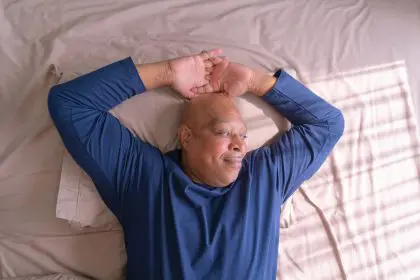New research reveals that five minutes of vigorous daily exercise can significantly reduce blood pressure, offering hope to millions of Americans battling hypertension.
The study, published in the journal Circulation, analyzed data from nearly 15,000 participants, demonstrating that brief periods of intense activity like running, biking or climbing stairs yield measurable health benefits.
Five quick exercises that meet the vigorous activity threshold include:
- Running up and down stairs for five one-minute intervals
- Performing 30-second rounds of jumping jacks, mountain climbers and burpees
- Speed walking around the block at maximum effort
- Doing five sets of 20 jump squats
- High-intensity shadow boxing with rapid punches and movement
“Exercise is the most important thing favorably associated with blood pressure,” said Mark Hamer, professor in sport and exercise medicine at University College London.
The findings carry particular weight as high blood pressure contributed to more than 685,000 deaths in the U.S. in 2022, according to the Centers for Disease Control and Prevention.
The condition, defined as a systolic reading above 130 or diastolic reading above 80, affects approximately half of American adults. It significantly increases risk for heart disease and stroke.
Researchers analyzed data from six previous studies where participants wore movement trackers. The 14,761 participants, averaging 54 years old, represented a near-even gender split.
Daily activity patterns showed participants averaged seven hours sleeping, 10 hours in sedentary activities, three hours standing, one hour slow-walking, one hour fast-walking and 16 minutes in vigorous exercise.
Results showed replacing just five minutes of inactive time with vigorous exercise lowered systolic blood pressure by 0.68 points and diastolic pressure by 0.54 points. Increasing to 20 minutes of intense activity produced a two-point systolic improvement.
Previous studies indicate a two-point systolic decrease can reduce heart disease and stroke mortality risk by seven to 10 percent.
“This study tells us that a starting point of five to 10 minutes a day can help,” said Dr. Arun Manmadhan, assistant professor of medicine.
Dr. Matthew Tomey, cardiologist at Mount Sinai Fuster Heart Hospital, acknowledged time constraints often prevent exercise routines. However, these findings suggest significant health gains without major time investment.
Dr. Sean P. Heffron recommends finding enjoyable activities like hiking or dancing to maintain consistency. Activity trackers and fitness apps can help monitor progress and maintain motivation.
Dr. Evan Brittain of Vanderbilt University Medical Center noted this research challenges traditional beliefs about exercise duration, showing short bursts of activity provide meaningful benefits.
The research emphasizes that any movement matters, suggesting even brief periods of vigorous activity can improve cardiovascular health when incorporated into daily routines.















